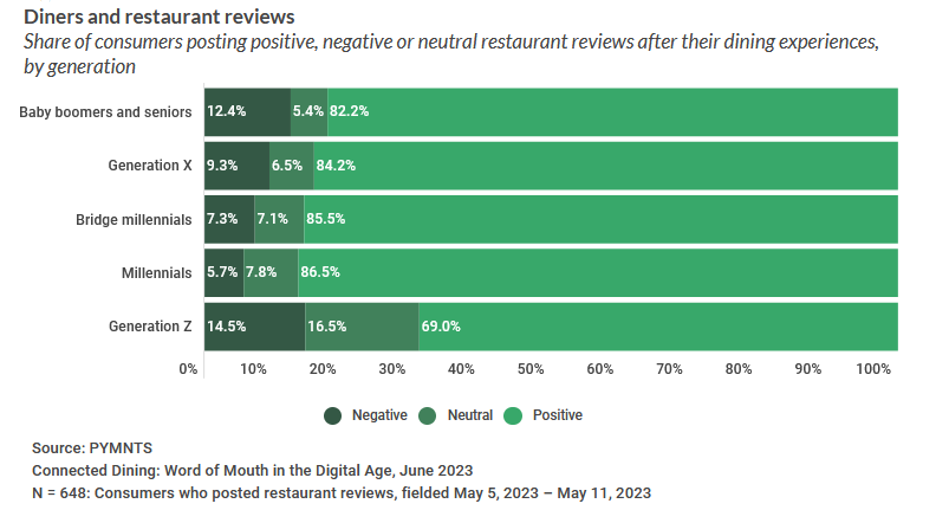With so much consumer review information accessible on the go, the days of simply rolling the dice and taking a chance on a local restaurant appear to be fading.
A recent study from PYMNTS Intelligence found that these voices matter, as nearly half (46%) of all restaurant-goers are more likely to patronize an eatery after reading positive online reviews, while 29% of diners are very or extremely likely to avoid a restaurant after reading negative reviews.
These are just two of the findings uncovered in “Connected Dining: Word of Mouth in the Digital Age,” a PYMNTS Intelligence report based on a survey of nearly 2,300 consumers who were asked to share details regarding how they engage digitally when dining out.
Among the findings: even though digital platforms such OpenTable and TripAdvisor specialize in sharing consumer reviews, far more respondents say they more likely to consult Google (62%), Facebook (52%), YouTube (46%) or Instagram (39%) before selecting a bistro.
Restaurant owners should know that in today’s digital marketplace, every diner now possesses the power to be a brand ambassador, for better or worse.
Thirty-nine percent of respondents say they would be very or extremely likely to post positive reviews following a pleasant dining experience, while 22% of diners say they would leave poor restaurant reviews if the experience was subpar.
In fact, 81% of all respondents told us they had recently posted a review and said their online write-ups were positive. Only 9% reported writing negative reviews, meaning consumers are nine times more likely to share a positive experience than a negative one.
Millennials might be the best brand ambassadors, as they are more likely than any other consumer segment to post restaurant reviews. Forty percent of millennial respondents said they had posted at least one review in the month prior to the survey — and 87% of them said those reviews were positive.

On the flip side, Generation Z patrons appear to be the toughest to please. Nearly 15% of Gen Z respondents said they are likely to post a negative review following a substandard dining experience. It should be noted, though, that the data showed Gen Z consumers are far more likely to rely on social media when selecting a restaurant.
Boomers aren’t far behind Gen Z when it comes to spreading the news about a bad dining experience. Nearly 13% of them are willing to post negative after-dinner reviews.
